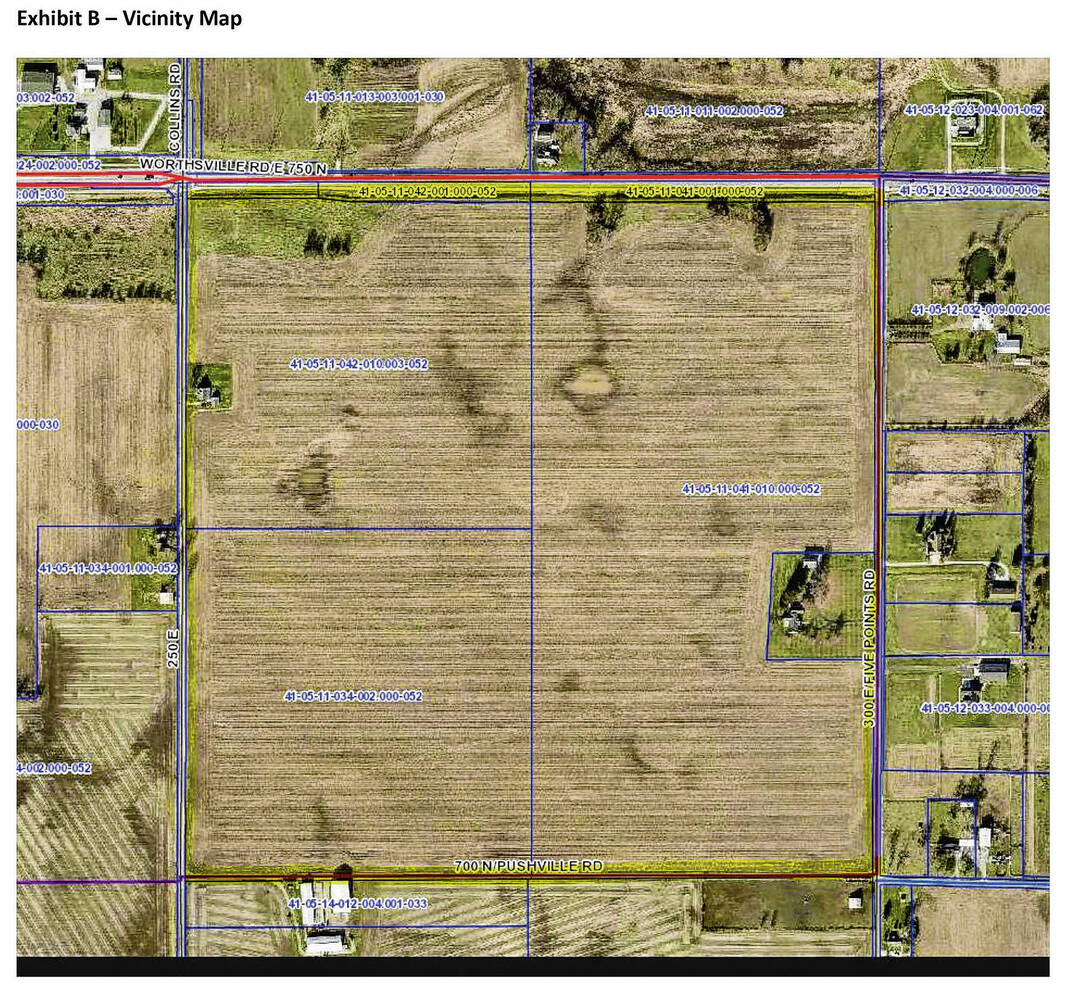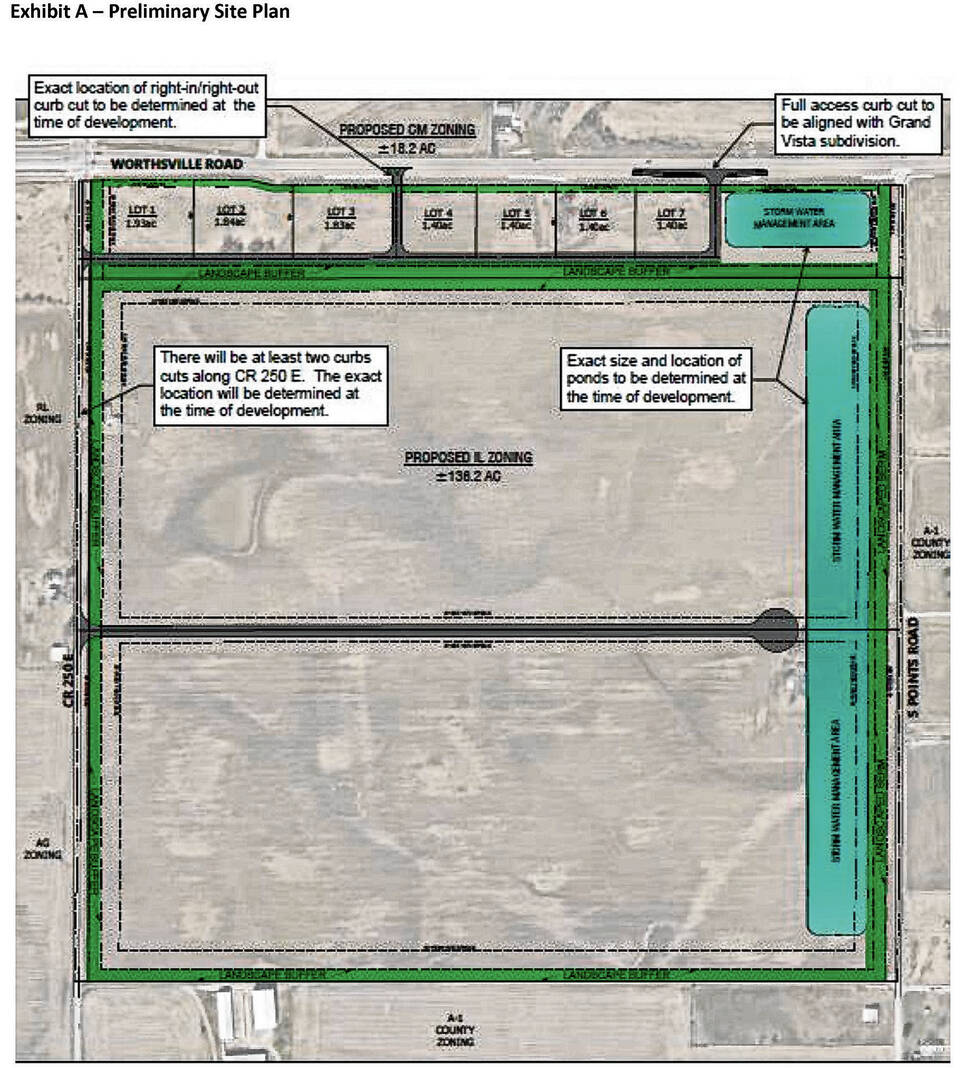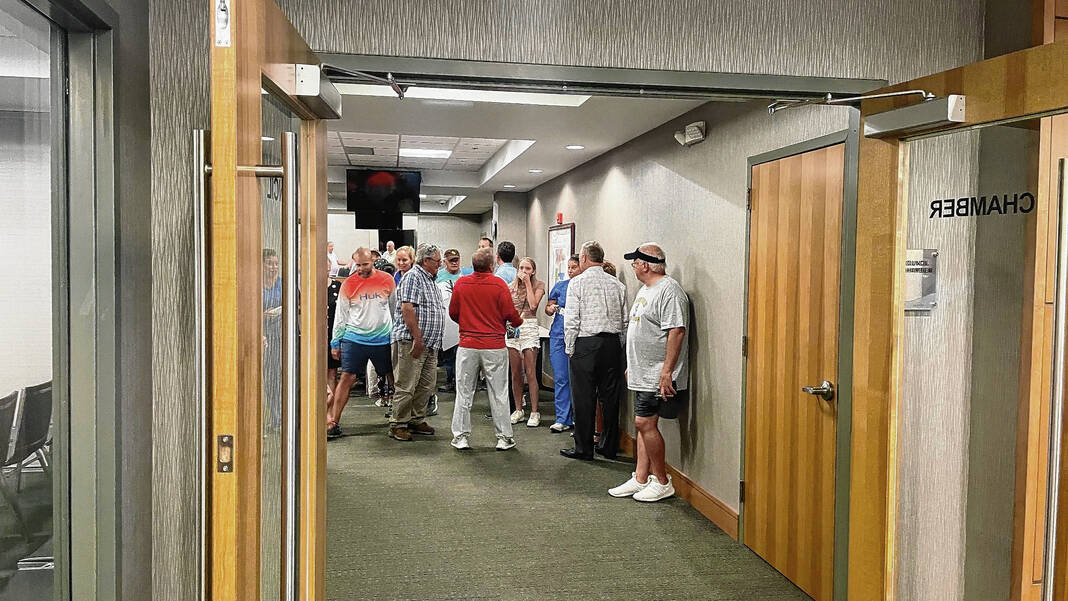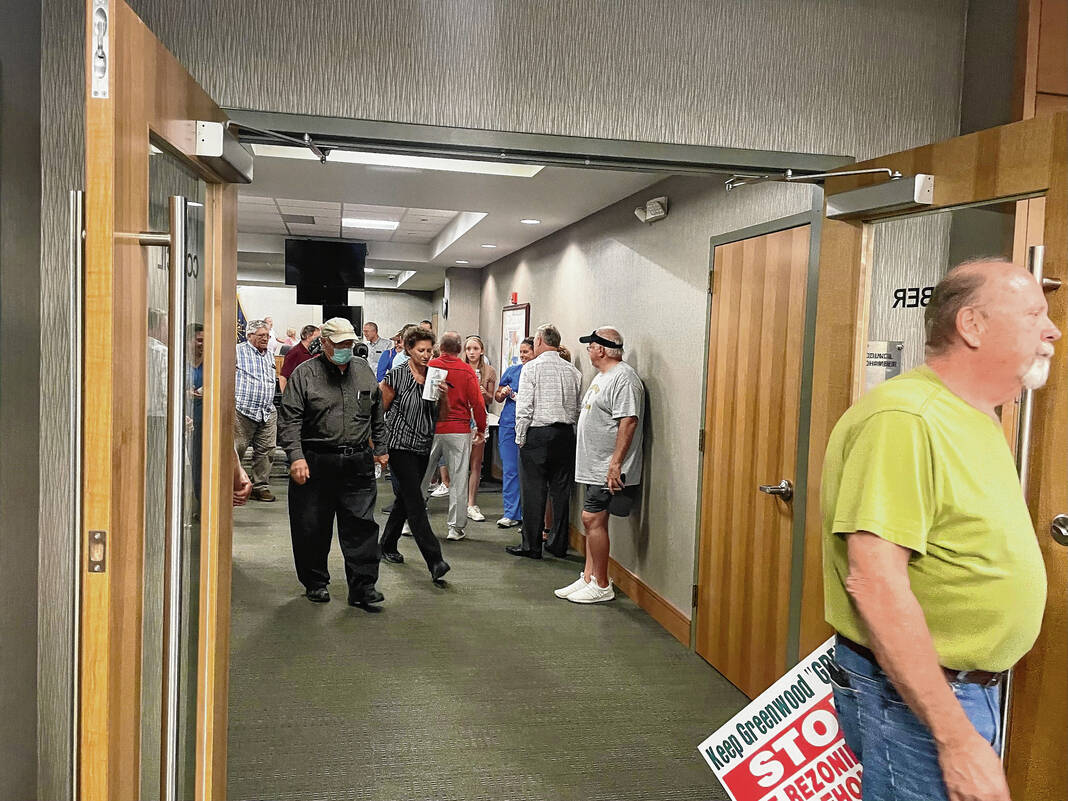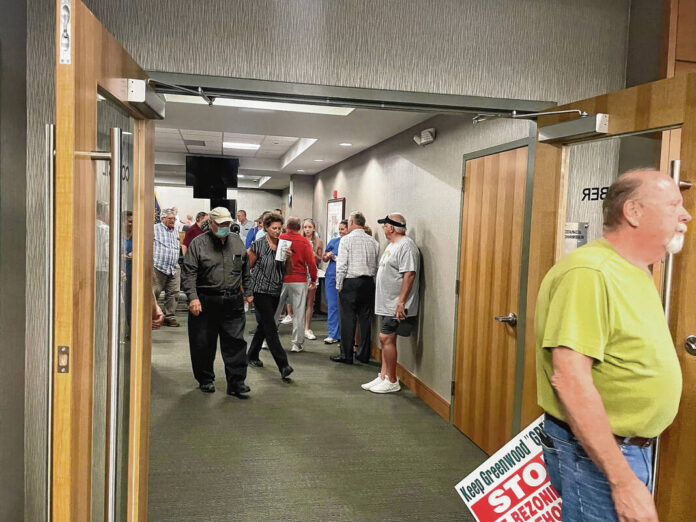
Residents and plan commission members file out of the council chambers following Monday night’s Greenwood Advisory Plan Commission meeting at the Greenwood City Center. Many residents came to voice their opposition to the proposed rezoning of about 154.4 acres of agricultural land located on the southeast corner of Worthsville Road and County Road 250 East/Collins Road) to industrial and commercial.
Noah Crenshaw | Daily Journal
A controversial proposal to rezone just over 154 acres on Greenwood’s southeast side for commercial and industrial use received an unfavorable recommendation from the city’s plan commission Monday.
Kelsay Farms, and its associated company, JRM Associates LP, came before the Greenwood Advisory Plan Commission to request the rezoning of about 154.4 acres of land located on the southeast corner of Worthsville Road and County Road 250 East/Collins Road from agricultural to commercial and industrial zoning.
The Kelsay family has owned the land for four generations, and the family farmed the land up until they had to close down operations a few years ago. Since then, the family has expressed an interest in selling the land, and has received several proposals from developers interested in developing the land, said Eric Prime, an attorney representing the family.
One of those proposals progressed to the point where it was before the plan commission in 2019 when Kelsay Farms requested to rezone about 188 acres of agricultural land to industrial for five large warehouses to be built by a Chicago-based logistics company.
That proposal, however, was met with widespread opposition from nearby residents, who begged city leaders to stick to their overall vision for the Worthsville Road area, which was outlined in the city’s land-use plans for the area. The plan commission was unable to decide on the proposal, and the developer withdrew it a few weeks later at the request of Mayor Mark Myers.
Since then, Kelsay Farms has carefully looked over each proposal to see if it could work for the area. During that time, the surrounding land has also changed, with a lot of the land north of the proposed rezoning now being zoned as industrial. Additionally, the coronavirus pandemic has caused a shift in market needs due to changes in buyers’ shopping habits, leading to more interest in building distribution facilities, Prime told the commission Monday night.
With all this in mind, when Indianapolis-based Duke Realty approached the Kelsay family about developing a mixed-use project on the land — the first mixed-use project proposed for the site — they were willing to take it forward, Prime said.
The largest chunk of the proposed rezoning would be for the development of a manufacturing, light industrial or a warehouse/distribution center, with commercial lots being available along Worthsville Road. The number of buildings is unknown as it is speculative, according to city documents.
All traffic for the proposed industrial area would come down County Road 250 East/Collins Road, and no access will be available on Five Points Road. This was deliberate to keep the development separate from surrounding properties, as it shouldn’t be intrusive, Prime said. There would also be a berm separating the commercial lots from the industrial area, he said.
Prime told the commission it was the right time to develop the area. He added that the land was one of the few parcels of developable land on the city’s southeast side that could be part of the Greenwood’s tax increment financing (TIF) districts. The creation of the Johnson County I-65 TIF district, which borders the city’s southeast side, has pinned in the city in this regard, he said.
While city planning staff and the developer were for the proposal, the dozens of nearby residents who filled the council chambers Monday night were not.
David Ebeyer, a Whiteland resident who is also a realtor and appraiser in the Greenwood area, questioned the building of more speculative warehouses in Greenwood. Ebeyer lives just east of Greenwood city limits and was one of several residents who also opposed the 2019 rezoning.
“Does Greenwood really need any more warehouses?” Ebeyer said.
Ebeyer also asked how warehouses fit in the city’s theme of quality of life. The city has made improvements in other areas over the last several years, so Ebeyer questioned why there were only speculative buildings being proposed in this area of the city.
“Why isn’t it being marketed for higher-end clients … or other high-tech businesses?” he said.
Nick Hunter, Ebeyer’s neighbor, told the plan commission he thinks the proposed rezoning conflicts with the current use of land and the city’s Worthsville Road I-65 Interchange Land use plan, which recommends the land be mixed-use.
The plan says the interchange is designed to be the primary gateway for the south side of the city, so it should avoid repetition of developments located near the city’s other interchanges, he said.
Nick Hunter continued that the gateway should have a lasting impression, and any developments in the area will set the tone for future developments.
“We must stand firm and show (industrial developers) that the city will adhere to its vision and its promise to the community,” Nick Hunter said.
Christina Hunter, another Whiteland resident, told the commission she was concerned about light pollution coming from the development. The proposed rezoning would put warehouses about 500 feet from her backyard, and there is already light pollution from other warehouses located two miles away, she said.
“What kind of buffer would disseminate this kind of light pollution that’s two miles away from our house right now, putting it 500 feet from my house?” Christina Hunter said.
A few residents, along with plan commission member Monica Magna, also questioned how the development would be impacted by Monday’s announcement that Duke Realty is being bought by San Francisco-based real estate firm Prologis Inc. for $26 billion, pending approval.
Prologis is one of the world’s largest real estate investment trusts, with ownership and investments in properties and development projects totaling about 1 billion square feet in 19 countries, according to the Indianapolis Business Journal.
Prime told the commission that he found out about the purchase on Monday morning. His staff has reached out to Duke about the purchase, and Duke representatives said that nothing should change locally with the project, he said.
The plan commission first voted to give a favorable recommendation with commitments, but that failed in a split 4-5 vote. The commission then voted in another split 5-4 vote to give an unfavorable recommendation.
The request now goes to the city council, where the body will have the final say on the petition.


